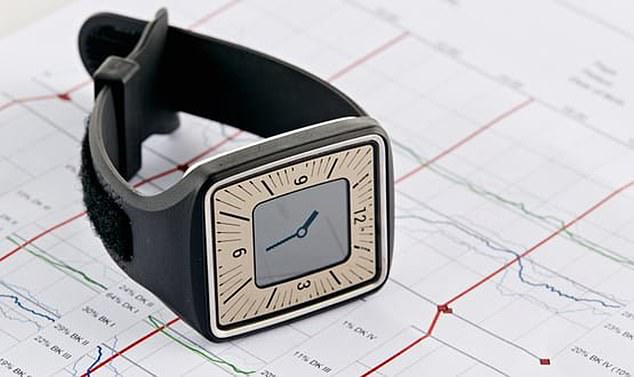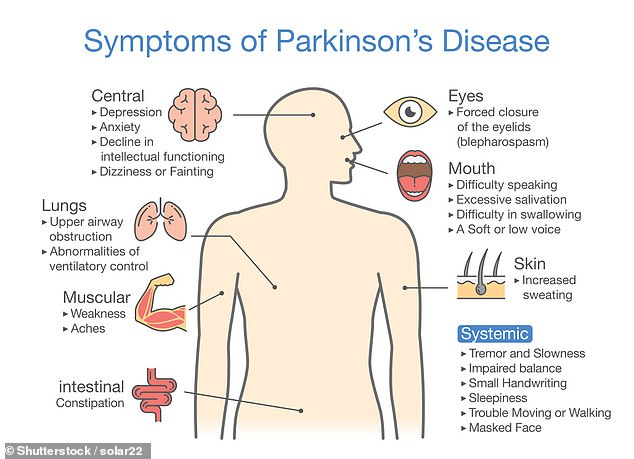Every Parkinson's patient could soon receive a high-tech smartwatch that allows doctors to monitor their condition remotely.
The £175 device was designed by an Australian company specifically for the care of people with Parkinson's.
It tells doctors how often the user moves and sleeps - two key indicators of possible complications from the degenerative brain disease.
If the patient is exercising excessively and sleeping less, the doctor may decide to change his medication or offer other interventions such as physical therapy to prevent the condition from worsening.
The device also buzzes to remind patients to take their daily medication.

The £175 device (above) was designed by an Australian company specifically for the care of people with Parkinson's
Two hundred patients at University Hospitals Plymouth Trust have received the watch as part of a trial and the program could soon be expanded to cover the 140,000 Brits living with the incurable disease.
The move was welcomed by NHS boss Amanda Pritchard, who says the technology is dramatically improving patients' quality of life.
The watch records information via sensors within the device, similar to an Apple Watch. It is programmed to send data directly to the doctor after six months.
Parkinson's disease is a condition in which parts of the brain become progressively damaged.
Over time, patients often experience involuntary tremors, slow movements, and stiff and inflexible joints.
Doctors are still unsure what triggers it and there is currently no cure, but patients can take medications that relieve the main symptoms.

Parkinson's disease causes muscle stiffness, slow movement, tremors, sleep problems, chronic fatigue, reduced quality of life and can lead to severe disability
To make sure these medications are working well, patients are checked in the hospital every six to 24 months, where they continue to fill out questionnaires detailing their symptoms.
The smartwatch, known as Parkinson's KinetiGraph, automatically generates a report every six months based on the patient's movement and sleep patterns, which is then sent to their doctor.
One of the first to try out the watch was John Whipps, 69. The retired biologist from Cornwall says the technology removes the stress of having to log his ever-changing symptoms.
He said: "It really gives you confidence knowing it's getting accurate shots and you don't have to rely so much on your own perception."

 Suche
Suche
 Mein Konto
Mein Konto

